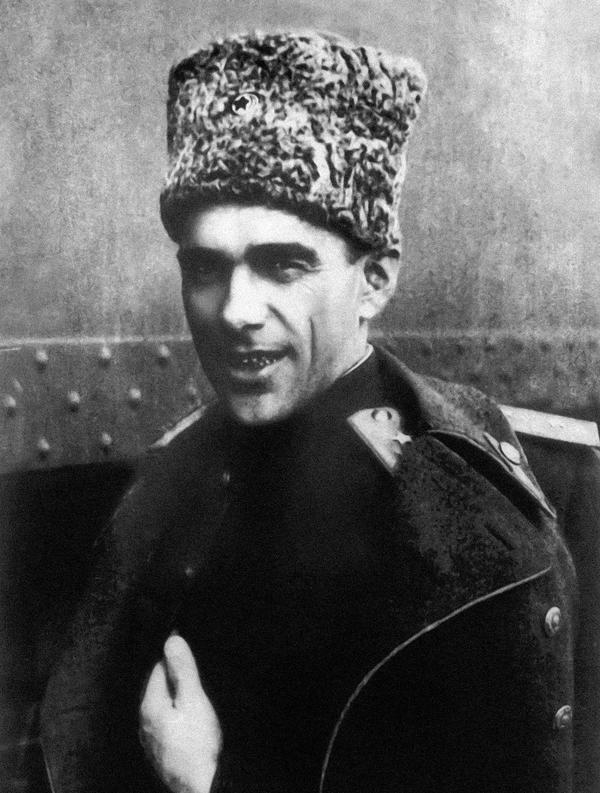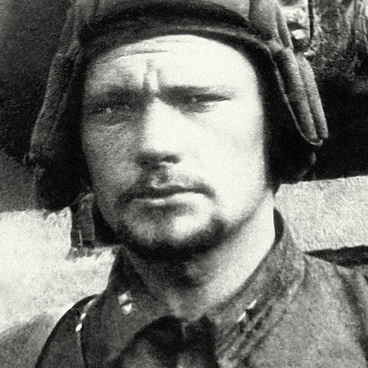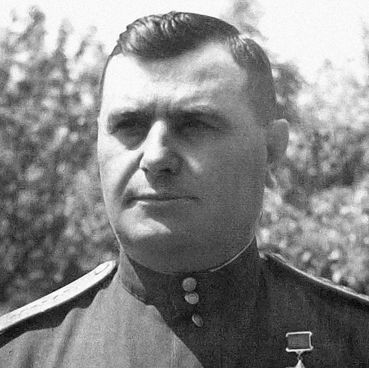Soviet-time pilots have their own icons, including rightly Vladimir Aleksandrovich Sudets, Air Force Marshal, a Hero of the Soviet Union. He joined the Red Army in 1925 to be shortly enrolled in a flight school, graduated later from command staff courses and then sent to Mongolia as both an instructor and military adviser. Since 1933, Vladimir Sudets trained Mongolian Army pilots to be later awarded for that the title Hero of the Mongolian People’s Republic.
Colonel Vladimir Sudets took his first combat in Spain and then fought in Finland. In the autumn of 1940, he was appointed the commander of the 4th of Long-Range Bomber Corps, based at the city of Zaporozhe. Most of the Corps aircrafts were destroyed on the ground during the first days of the wars. The remaining aircraft were supposed to defend approaches to the Crimea, but could barely cope with the mission.
Given his high rank, Vladimir Sudets was not supposed to fly, yet he violated the instructions and completed 66 combat sorties in the first few months of the war. A later task set for his long-range bombers to defend Kiev did not succeed and the city was finally surrendered to the Nazi troops after tough combats. The colonel was appointed to the 51st Air Force army and later even sent to the rear as accused actually by the Supreme Command actually for the defeat at Kiev.
Years before the Great Patriotic War, dozens of experienced and talented Soviet military leaders were repressed so top-level career officers were worth gold. Joseph Stalin was aware that the war could not be won without their expertise, and Vladimir Sudets was returned in 1942 to the regular army first to command the 1st Bomber Corp and later the 17th Air Army.
The Sudets-led air squadrons fought in the Battle of Kursk and liberated Donbass and Odessa. The precise and strategically balanced actions of his air army helped prevent the destruction of the Dnieper Hydro Power Station and save thereby dozens of communities from flooding. In the spring of 1945, Vladimir Sudets was awarded the title Hero of the Soviet Union for his courage and successful air operations held in the Soviet Union and abroad.
Colonel Vladimir Sudets took his first combat in Spain and then fought in Finland. In the autumn of 1940, he was appointed the commander of the 4th of Long-Range Bomber Corps, based at the city of Zaporozhe. Most of the Corps aircrafts were destroyed on the ground during the first days of the wars. The remaining aircraft were supposed to defend approaches to the Crimea, but could barely cope with the mission.
Given his high rank, Vladimir Sudets was not supposed to fly, yet he violated the instructions and completed 66 combat sorties in the first few months of the war. A later task set for his long-range bombers to defend Kiev did not succeed and the city was finally surrendered to the Nazi troops after tough combats. The colonel was appointed to the 51st Air Force army and later even sent to the rear as accused actually by the Supreme Command actually for the defeat at Kiev.
Years before the Great Patriotic War, dozens of experienced and talented Soviet military leaders were repressed so top-level career officers were worth gold. Joseph Stalin was aware that the war could not be won without their expertise, and Vladimir Sudets was returned in 1942 to the regular army first to command the 1st Bomber Corp and later the 17th Air Army.
The Sudets-led air squadrons fought in the Battle of Kursk and liberated Donbass and Odessa. The precise and strategically balanced actions of his air army helped prevent the destruction of the Dnieper Hydro Power Station and save thereby dozens of communities from flooding. In the spring of 1945, Vladimir Sudets was awarded the title Hero of the Soviet Union for his courage and successful air operations held in the Soviet Union and abroad.



